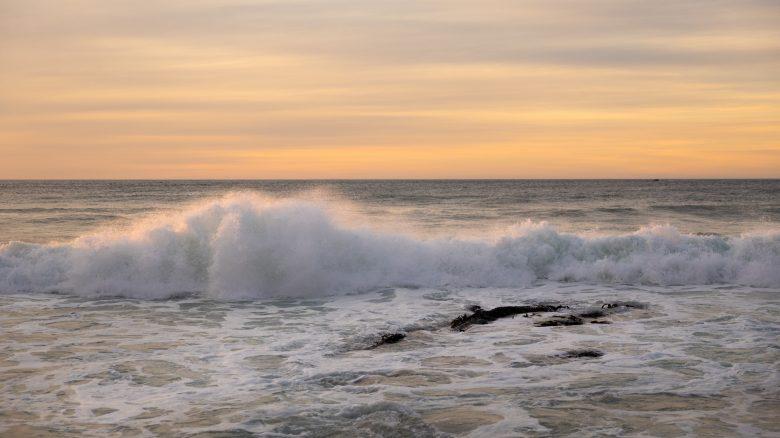We would like to thank our generous sponsors for making this article possible.
Oceans are crucial to the planet. Making their preservation part of the impact economy could ensure we continue to reap their benefits
Oceans are crucial to the normal functioning of the earth, but their value is not reflected in today’s economic models. That absence will have to change if the world’s economies are to chart the journey to a sustainable future. The future of our oceans lies at the heart of those efforts.
Our recent white paper1 explored the importance of transitioning our world toward an impact economy and away from its current focus on output. Part of that shift includes recognizing the economic value of our planet’s ecosystems and enabling financial markets to assess the cost of eroding them.

Our planet relies on a host of interconnected ecosystems to function normally, many of which depend on the oceans. They act as a unique means of improving air and climate quality and help to regulate the earth’s temperature. Oceans also provide many economic and cultural benefits to humanity too, some of which are more obvious, like shipping, and others are less tangible ecosystem services, including provisioning services (food, water), and cultural services (spiritual, recreational).2
From our partners:
While the ecosystem services that are provided by oceans are important to the smooth functioning of our planet and societies, some of these benefits are often subtle and only accumulate over long periods of time. That means they can be taken for granted and ignored—which leaves them vulnerable to exploitation and destruction.
To help underline the economic importance of ocean ecosystem services, we highlight three specific examples: Whales, Mangroves and Reefs, and Medicines.
- Whales (& phytoplankton) as a carbon sink3
While it may not seem immediately apparent, whales have an important impact on an ocean’s ecosystem. During its lifetime, an average whale will capture 33 tons of CO2, and then sequester these emissions for centuries after they die and sink to the ocean floor. Whales have also been found to increase the populations of phytoplankton because their excrement contains nutrients ideal for this microscopic life form. Phytoplankton are a vital source of oxygen production, and collectively they sequester enormous amounts of CO2. In fact, it’s been calculated to be equivalent to the carbon captured by 1.7 trillion trees, or four Amazon rainforests. If we could grow the global whale population from the current ~1.3 million to previous highs of four to five million we would create a significant carbon sink, both through whales and the phytoplankton they support. It has been estimated that it will take 30 years to double the current whale population without any action; however, efforts to protect whales could result in much quicker growth of the population and related carbon sequestration. - Mangroves & reefs as coastal protection4
Storms are widely predicted to become more frequent and damaging as a result of climate change. That means the traditional role that mangroves and reefs play in reducing storm damage are likely to become even more important. Mangroves have been proven to greatly reduce flooding, wind speeds, and the impact of waves during storms. Coral reefs have been found to decrease wave energy by 97%, protecting the shore from storm surges and potentially damaging waves. It is estimated that in the US alone, coral reefs provide over USD 1.8 billion-worth of protection to human property and infrastructure. - Medicines5
Many common medicines are derived from nature. To date, most of these originate from terrestrial sources, but over the past 30 years scientists have increasingly studied marine species for new medicines to treat illnesses such as cancers and asthma. Sourcing effective treatments (or cures) for commonplace or debilitating illnesses would provide major benefits to humankind.
Pricing is a challenge.
Despite the benefits they provide, the value of oceans—like many ecosystem services—tends to be undervalued in today’s economic models, if it is registered at all. These benefits are instead often treated as an unchanging constant, even though we know that climate change poses major threats to oceans and the life contained within them.
Part of the challenge is that many of the benefits which oceans provide are not currently measured and can be difficult to quantify precisely. So, how can we factor in their intrinsic value to the impact economy?
One approach is to create a better understanding of the unintended consequences of different human activities on the oceans. For example, what are the impacts of shipping routes or dragnet fishing on whale populations? Examining them in conjunction with whale migration patterns could lead to slightly different routes or fishing activities, which may benefit whales and plankton—and ultimately the carbon emissions they can absorb.
Another potential externality is the impact of discarded fishing nets on whales and other marine life. As we’ve seen, whales are a proven form of natural carbon capture. Acknowledging and quantifying the scale of damage may reduce the manner and amount of nets that are discarded, nets which might otherwise have entangled a whale.
This kind of thinking may allow us to better acknowledge and protect the solutions that ocean ecosystems offer as we work to tackle climate change and other challenges. Mangroves and coral reefs provide one good example; they provide a demonstrable benefit to coastal protection. As a result, local governments and insurers may better understand the advantages of ensuring they are protected—and the dangers of not doing so.
Our oceans provide myriad benefits to humanity, but many of them are unrecognized and vulnerable to harm. Our best hope is to find an equilibrium in which humans recognize the value of preserving our oceans’ unique ecosystem services—and the cost of squandering them.
1https://www.ubs.com/global/en/sustainability-impact/impact-economy.html
2https://www.millenniumassessment.org/en/Framework.html
3https://www.imf.org/en/Publications/fandd/issues/2019/12/natures-solution-to-climate-change-chami
4https://www.nature.org/en-us/what-we-do/our-insights/perspectives/state-of-world-mangroves/, https://journals.plos.org/plosone/article?id=10.1371/journal.pone.0158094, https://www.usgs.gov/centers/pcmsc/science/role-reefs-coastal-protection
5https://www.smithsonianmag.com/science-nature/medicine-from-the-sea-99586066/
The author is grateful for feedback from: Veronica Weisser, Adam Gustafsson, Andrew Lee, Jackie Bauer, Mike Ryan, Richard Morrow.
For further information, please visit www.ubs.com/institute-disclaimer
By: Annabel Willder
Originally published at: UBS












